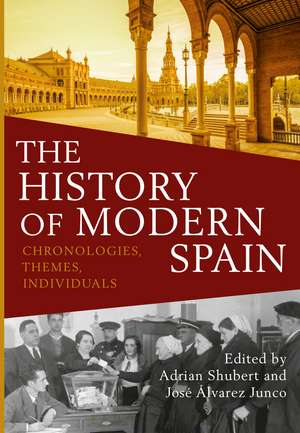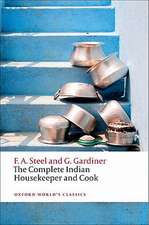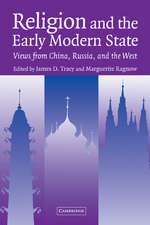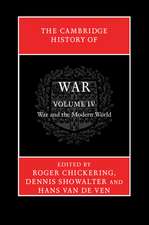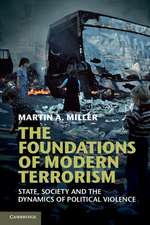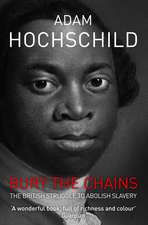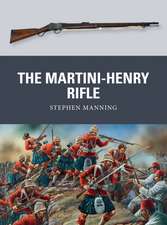The History of Modern Spain: Chronologies, Themes, Individuals
Editat de Professor Adrian Shubert, Professor José Alvarez Juncoen Limba Engleză Paperback – 13 dec 2017
| Toate formatele și edițiile | Preț | Express |
|---|---|---|
| Paperback (1) | 207.78 lei 3-5 săpt. | |
| Bloomsbury Publishing – 13 dec 2017 | 207.78 lei 3-5 săpt. | |
| Hardback (1) | 577.76 lei 6-8 săpt. | |
| Bloomsbury Publishing – 13 dec 2017 | 577.76 lei 6-8 săpt. |
Preț: 207.78 lei
Preț vechi: 249.13 lei
-17% Nou
Puncte Express: 312
Preț estimativ în valută:
39.77€ • 41.41$ • 33.61£
39.77€ • 41.41$ • 33.61£
Carte disponibilă
Livrare economică 17 februarie-03 martie
Preluare comenzi: 021 569.72.76
Specificații
ISBN-13: 9781472591975
ISBN-10: 1472591976
Pagini: 504
Dimensiuni: 169 x 244 x 33 mm
Greutate: 0.85 kg
Editura: Bloomsbury Publishing
Colecția Bloomsbury Academic
Locul publicării:London, United Kingdom
ISBN-10: 1472591976
Pagini: 504
Dimensiuni: 169 x 244 x 33 mm
Greutate: 0.85 kg
Editura: Bloomsbury Publishing
Colecția Bloomsbury Academic
Locul publicării:London, United Kingdom
Caracteristici
Comprehensive chronological and thematic coverage of Spain's modern history, as well as a collection of useful biographical sketches, in an innovative three-part structure
Notă biografică
Adrian Shubert is Professor of History at York University, Toronto, Canada. He is the author of A Social History of Modern Spain, 1800-1990 (1990) and Death and Money in the Afternoon: A History of the Spanish Bullfight (2001) and the co-editor, along with José Alvarez Junco, of Spanish History since 1808 (2000). He is a Fellow of the Royal Society of Canada and Comendador de la Orden del Mérito Civil.José Álvarez Junco is Professor of History at the Universidad Complutense de Madrid, Spain. He is the author of Mater Dolorosa: La idea de España en el siglo XIX (2001), which won the National Essay Prize in 2002 and prizes from the Fastenrath Foundation and the Royal Academy of History in 2003. He is the co-editor, along with Adrian Shubert, of Spanish History since 1808 (2000).
Cuprins
List of FiguresNotes on ContributorsChronologyIntroduction (Jose Álvarez Junco, Universidad Complutense de Madrid, Spain and Adrian Shubert, York University, Canada) Section I - Chronologies 2. The Crisis of the Old Regime: 1808-1833 (Gregorio Alonso, University of Leeds, UK) 3. The Time of Liberalism: 1833-1874 (Maria Sierra, Universidad de Sevilla, Spain) 4. The Restoration: 1874-1914 (Javier Moreno-Luzón, Universidad Complutense de Madrid, Spain) 5. The Contested Quest for Modernization: 1914-1936 (Nigel Townson, Universidad Complutense de Madrid, Spain) 6. The Spanish Civil War, 1936-1939 (Angela Cenarro, University of Zaragoza, Spain) 7. The Franco Regime, 1939-1975 (Oscar Rodriguez Barreiro, University of Almería, Spain) 8. The Transition to Democracy and the Constitutional Monarchy, 1975-2016 (Pamela Radcliff, University of California San Diego, USA) Part II - Themes 9. The Economy (Leandro Prados de la Escosura, Charles III University of Madrid, Spain) 10. Nations and Nationalism (Xosé-Manoel Núñez Seixas, Ludwig Maxmillian University of Munich, Germany) 11. Gender (Aurora G. Morcillo, Florida International University, USA) 12. Ways of Life: Cities, Towns and Villages (Jesus Cruz, University of Delaware, USA) 13. Empire and Colonies (Stephen Jacobson, Pompeu Fabra University, Spain) 14. The Environment (Josefina Gómez de la Mendoza, Universidad Autónoma de Madrid, Spain) 15. Culture (Rafael Núñez Florencio, Independent Scholar) 16. Intellectuals (Santos Juliá, UNED, Madrid, Spain) 17. Social Movements (Angeles Barrio Alonso, University of Cantabria, Spain) 18. Religion (Julio de la Cueva Merino, University of Castilla-La Mancha, Spain) 19. Migrations (Aitana Guia, California State University-Fullerton, USA) 20. The State (Diego Palacios Cerezales, University of Stirling, UK) 21. The Military (Geoffrey Jensen, Virginia Military Institute, USA) 22. The Politics of Memory (Paloma Aguilar, UNED, Madrid, Spain and Clara Ramírez-Barat, Auschwitz Institute for Peace and Reconciliation, USA) 23. Spain in World History (Scott Eastman, Creighton University, USA) Part III - Individuals 24. Fernando VII (Emilio la Parra, University of Alicante, Spain) 25. Francisco de Arango y Parreño (Vicent Sanz, University Jaume I, Spain)26. Juan Álvarez Mendizábal (Mark Lawrence, University of Kent, UK)27. Countess of Mina (Maria Cruz Romeo Mateo, University of Valencia, Spain) 28. Emilia Pardo Bazán (Isabel Burdiel, University of Valencia, Spain) 29. Juan Prim (Gregorio de la Fuente Monge, Universidad Complutense de Madrid, Spain) 30. Pablo Iglesias (Jose Álvarez Junco, Universidad Complutense de Madrid, Spain) 31. Francesc Cambó (Enric Ucelay da Cal, Pompeu Fabra University, Barcelona, Spain) 32. José Ortega y Gasset (Javier Zamora Bonilla, Universidad Complutense de Madrid, Spain) 33. Manuel Azaña (Fernando del Rey Reguillo, Universidad Complutense de Madrid, Spain) 34. Dolores Ibarruri, La Pasionaria (Rafael Cruz, Universidad Complutense de Madrid, Spain) 35. Francisco Franco (Antonio Cazorla Sanchez, Trent University, Canada) 36. Manuel de Falla (Edward Baker, Independent Scholar)37. Pilar Primo de Rivera (Inbal Ofer, The Open University of Israel)GlossaryFurther ReadingIndex
Recenzii
An impressive, up-to-date, and exceptionally researched glimpse into events, periods, concepts and trends, and personages of modern Spanish history.
José Álvarez Junco and Adrian Shubert have brought together many of the best Spanish, British and North American scholars to provide a dazzling new history of modern Spain from 1808 to the present day. This is required reading for students and anyone interested in Spain.
[It] should be considered essential reading for all students of the modern history of Spain. While unreservedly recommended for both community, college, and university library collections, it should be noted for the personal reading lists of students and non-specialist general readers with an interest in the subject.
José Álvarez Junco and Adrian Shubert have brought together many of the best Spanish, British and North American scholars to provide a dazzling new history of modern Spain from 1808 to the present day. This is required reading for students and anyone interested in Spain.
[It] should be considered essential reading for all students of the modern history of Spain. While unreservedly recommended for both community, college, and university library collections, it should be noted for the personal reading lists of students and non-specialist general readers with an interest in the subject.
